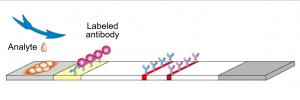I bet that most of you have used Wi-Fi in the classrooms. But have you ever thought about the pros and cons of using Wi-Fi in the classrooms? At this time, we at Hongik Tidings will post the winning essays of Hongik students arguing this subject. Read through and make up your own opinion!
Beginning First Place Essay
Cha Yu-gyeoung (dbrud1443@naver.com)
Is wi-fi in the classrooms really essential or helpful for the class? It might be, but there are many problems with that wi-fi. So I’m on the positive side with the argument that wi-fi in the classrooms should be turned off. There three realistic reasons why it is agreeable. First of all, concentrating on the class is the most important thing for the students. But, wi-fi is a kind of distractions. I can see many students using wi-fi for playing a game or doing SNS like Instagram or Facebook during the class. Even though some of them intend to concentrate on class, they might be attracted by the received Kakao talks which might not be received if wi-fi were not connected. Secondly, wi-fi in classroom is not an essential one. Some might complain it is needed for searching in order to study. But actually there are other methods instead of searching. They can ask some questions to their professor or just use their own data service on their phone. Lastly, it doesn't mean that students cannot use Internet in the entire campus. This argument is about turning off wi-fi in the classrooms. In other words, students can use it in the library, cafeteria, and so on. Keep it on in the other places in school will be done for students' needs like self-study, searching and convenience. With these reasons, my conclusion is classroom wi-fi must be turned off. And it will result increased concentration and participation during the class. It will be the most effective use of wi-fi in the campus.
Intermediate First Place Essay
Yuna Ye (16bitowl@gmail.com)
In this day and age where nearly everybody has a smartphone on them at all times, asking “What’s the wi-fi password?” whenever we go somewhere new has become a common saying. Wi-fi has become so crucial, so integral, to our everyday life, thanks to its wondrous ability to provide access to the internet. In this new "information age", where the internet has radically changed how we gain and process knowledge, turning off such a useful tool as Wi-fi seems terribly unwise.
In the past, when you were stuck trying to solve a problem, or had questions about certain material, the only source of information available to you was either books or other people. Either way was terribly inconvenient. To learn from books, you had to obtain a physical copy, and then frantically search through it for the information you needed. To learn from other people, you had to find a smart person, and trust that they weren't using their pesky free will to confuse you instead of helping you. But now with wi-fi and the internet, we are exposed to a boundless ocean of information. Students can look up trivial questions in the blink of an eye. Barring students from this obviously useful tool seems rather counterproductive.
If the internet has changed how we obtain knowledge, it has also changed how we process knowledge. Faced with an endless sea of information, the ability to find useful and credible knowledge has become more and more important. If the Internet is full of useless knowledge, then teachers should focus on teaching students how to recognize credible information instead of getting rid of it completely. But allowing students to use wi-fi during class, we would be able to teach them useful skills in a controlled environment.
Classrooms are supposed to be an environment in which all students may have the chance to learn. In the past, this was done by providing everybody with the same textbooks and providing access to libraries. However, we are now in an age where the internet exists, wi-fi or not. Thus, a wi-fi-less learning environment means students with a data plan and study access to the internet have a clear advantage over the students who do not. If classrooms cannot fill the knowledge gap created by financial situations, what use is the educational system?
Some people tend to think that wi-fi is detrimental to learning, since it is a common source of entertainment. While that is true in an uncontrolled environment, classrooms are a different matter. Beatrice can always supervise how their students use wi-fi, and if all else fails, there are plenty of programs that shut down sites that are clearly unrelated to learning. Times are changing, if we are to keep up, we should accept it and adapt to it, instead of shutting it away. If we want our students to learn that classrooms should indeed have wi-fi.
Lee Jumi can9803@naver.com
<저작권자 © 홍익대영자신문사, 무단 전재 및 재배포 금지>





